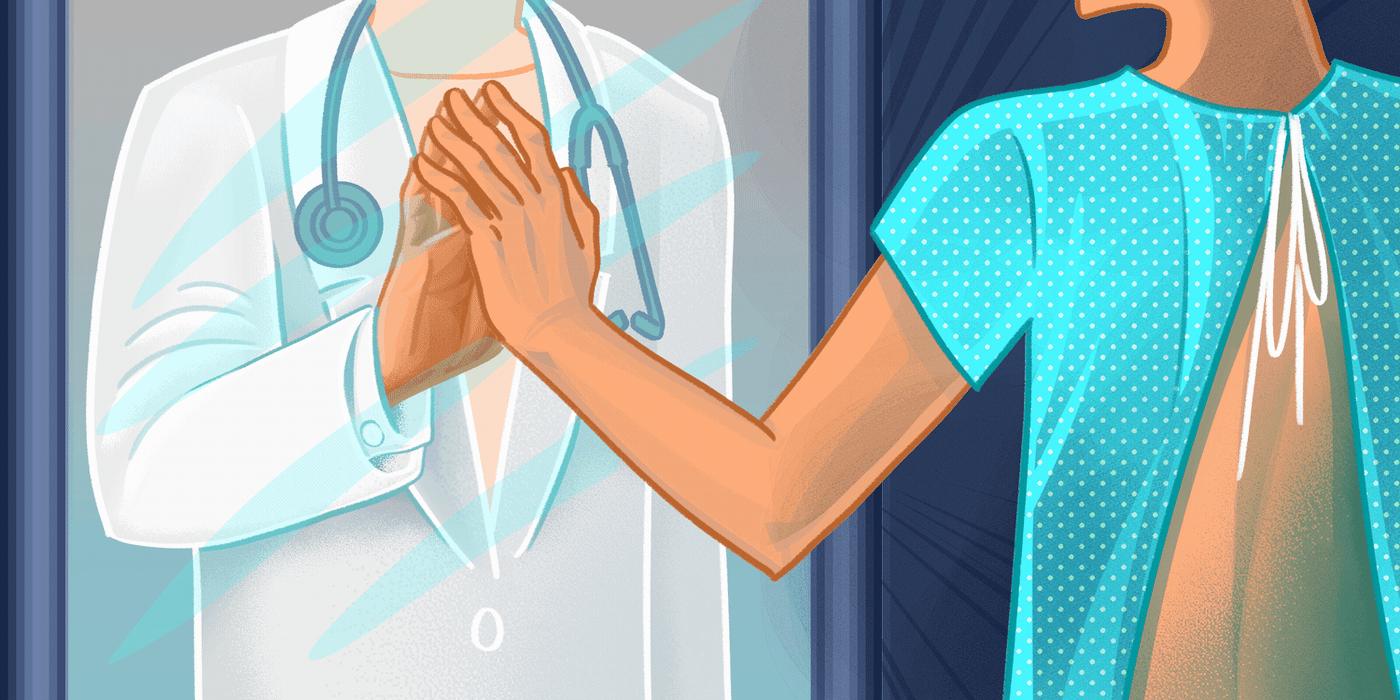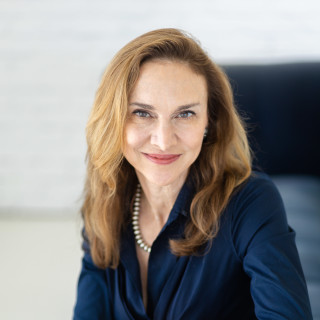This is a difficult story for me to tell. It is about facing our humanity and our mortality as physicians. And it’s about the truth that despite our desire to view ourselves as insiders with the keys to the hospital doors, the pact that we have made is one-sided. There is no covenant with the universe, no deal with the devil that if you save others, you yourself will be saved. I saw my physician father fall victim to this implicit belief after he became ill. I witnessed with sorrow his misplaced trust that he would be treated differently, and his difficulty in disengaging from his identity as a physician.
I’ll start by telling you about my father before his illness. He was a brilliant physician and researcher, an immigrant and outsider who worked his way up to the highest position in his specialty. He taught and inspired generations of medical students, residents, and fellows from around the globe. He was described to me years later by one of his former fellows as “a god.” He saved, mended, and assisted in the conception of countless lives through his innovative therapy and research. My father was a humble man in many ways. But he refused to submit to becoming a patient, and that’s what was ultimately his undoing.
My father’s family history was riddled with heart disease and early death. His mother died of a heart attack at the age of 45. Most of his siblings died young. But he was a vigorous and proud man, and even when he suffered an unexpected and frightening episode of hypertensive heart failure after returning home from a conference, he refused to see a cardiologist. I will never know what kept him from seeking help, but I believe that he was afraid of what he might learn. That all the years of work and sacrifice might eventually catch up with him. That he needed someone or something else to become physically whole again. That his health, and thus his independence, might be irretrievably changed. That he, like those he cared for and those he loved, was mortal and vulnerable. Truth be told, he refused to even go to the ER for evaluation. Instead, he sent my mother, a physician herself, out to the pharmacy for a dose of furosemide in the middle of the night. It was she who made the diagnosis, with her stethoscope and blood pressure cuff.
To us, his children, this somehow did not appear inappropriate or unusual. Our parents were true medical do-it-yourselfers. They always seemed to have everything under control, so why should this be any different?
Yet I recognized that something was off. At the time I was a medical student out of state, and during my calls home my dad regularly assured me that his blood pressure was a perfect 120/70 on a low dose of medication. I thought he was misleading me, but there was nothing I could do about it but believe him.
It should have come as no surprise that my father suffered a terrible hypertensive stroke several years later. It was severely disabling, and despite appropriate care, there was no hope of recovery. I will never forget finding him in the radiology department of the hospital, a local facility where no one knew him. Slumped in his wheelchair in a faded hospital gown, he was shivering, weeping, and demoralized.
This was the unraveling of the deal that he believed he had made. No longer the professor, the department chief, the innovator, he was simply the stroke in Room 402. He had gone from a man of the world to a random patient, unacknowledged and unremarkable. Plaintive pleas for water, request for assistance to the bathroom, and upkeep of simple hygiene were addressed by staff with disinterest, although he received timely care. Instead of being acknowledged as a respected and dignified physician, he felt like an outsider, just another task for the busy staff who had no time or reason to think any more of him.
After my father returned home, there was a brief period of hope and even optimism that things might improve, despite the devastation recorded on his imaging studies. But what little recovery he made was unimpressive and ultimately gave him no freedom or chance of independence. He had been beloved by his patients and revered by his coworkers, but after the first brief flurry of visitors, the world moved on and he was mostly forgotten. He desperately wanted to return to work, to reclaim his identity, to be of service. He was unable to drive himself, so after much anguished pleading, my mother agreed to take him for a visit to his hospital and research lab. He found himself disoriented, lost, and humiliated, subjected to the well-meaning pity of his former staff. It was clear to everyone that his days as a physician were over. Only a sole colleague regularly came by to see him for the next seven years of progressive decline that preceded his death.
From my father’s devastating story, I learned several hard but ultimately sustaining truths. These lessons have informed my life and my practice of medicine. I believe they have not only made me a better physician but have allowed me greater freedom to explore and discover the world outside of our profession.
Although I’d like to believe otherwise, the crucial lesson I learned was that being a physician does not provide us with a teflon shield. As physicians, we spend tens of thousands of hours learning our profession, honing our skills, giving up much of our 20s and 30s in service to our calling. Most of the time, we offer this sacrifice willingly, knowing that by doing so we will be worthy of our patients’ and colleagues’ trust. Even after training, the climb never ends. We may lose untold hours of sleep, delay time with family, forgo relationships and other passions. We take on the weight of our patients’ illness, fear, even their anger at the whims of fate. Surely the scales must somehow balance out for us in the end, a karmic destiny in this life. That is the deal that I believe my father made.
The truth is that physicians are human, no matter how invincible we may feel. My father’s sad journey taught me that. But if we need any further proof, COVID-19 has shown us that nobody is beyond the reach of sickness and death. I believe that it’s important to live life with that understanding.
To that end, I have made it my mission as a cardiologist to focus on preventive care. Paying attention to our own personal preventive health care is a simple matter of routine checkups and necessary procedures, along with a healthy diet and regular exercise. Addressing the sources of stress and dysfunction in our lives is equally important. The time to act is now. Even with the best preventive practices, there are no guarantees, but these straightforward measures have the power to extend and improve the quality of the life we have. Waiting until retirement to take preventive care seriously may mean waiting too late. Through my father’s suffering, I was able to appreciate the importance of taking the earliest risk factors seriously. My patients valued my drive and care, even when they didn’t share my concern.
My father’s story also taught me that eventually, most of us will leave the fraternity of medical practice, whether we do so willingly or not. We must take the reins and be the driver of our own lives; otherwise we will one day find ourselves separated and bewildered, without a North Star to follow. This guiding principle has led me to pursue interests and passions outside of the medical world that have enriched and opened up my life; among other things, I teach yoga and compete as an equestrian athlete. I believe the perspective I gained from my father’s experience also made me a better doctor. For this I am eternally grateful.
I retired from my cardiology practice last year after nearly 35 years in the medical profession. I hope that when I need them, my former colleagues will be there to keep me well and care for me. But nothing is promised. And there is no time to waste.
Have you ever believed something that turned out to not be true? Share in the comments.
Dr. Sarah Samaan is a cardiologist who retired in 2022 after nearly 30 years of practice. She is a physician coach, a medical writer, a registered yoga teacher, and is currently enrolled in a university BFA program in photographic arts. She competes in the equestrian sport of dressage. Dr. Samaan blogs at MindfulPhysicianCoaching.com and tweets @heartsmarter. She is a 2022–2023 Doximity Op-Med Fellow.
Animation by April Brust







